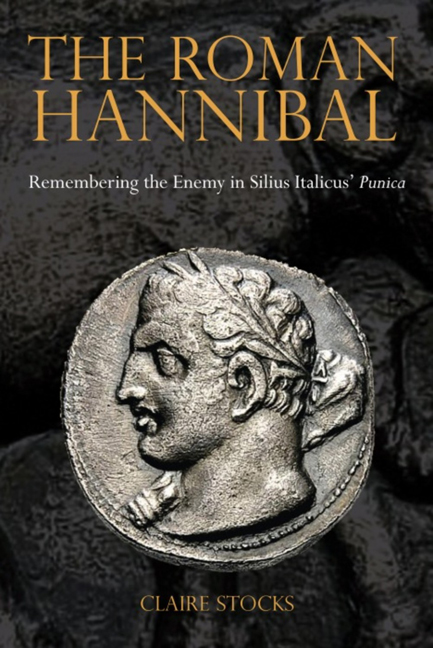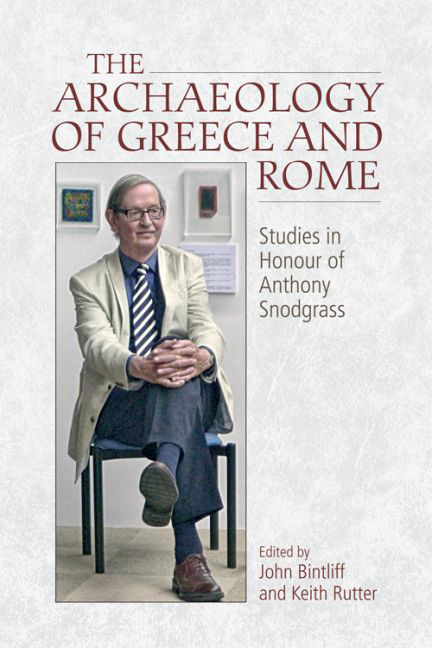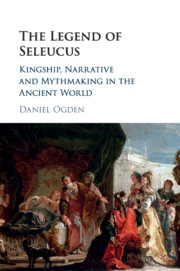Refine search
Actions for selected content:
23989 results in Ancient history
Chapter 2 - Sociability and Politics
-
- Book:
- Public Opinion and Politics in the Late Roman Republic
- Published online:
- 03 June 2017
- Print publication:
- 01 June 2017, pp 42-74
-
- Chapter
- Export citation
Subject Index
-
- Book:
- Public Opinion and Politics in the Late Roman Republic
- Published online:
- 03 June 2017
- Print publication:
- 01 June 2017, pp 269-270
-
- Chapter
- Export citation
Chapter 8 - Conclusions
-
- Book:
- Public Opinion and Politics in the Late Roman Republic
- Published online:
- 03 June 2017
- Print publication:
- 01 June 2017, pp 219-235
-
- Chapter
- Export citation
Contents
-
- Book:
- Public Opinion and Politics in the Late Roman Republic
- Published online:
- 03 June 2017
- Print publication:
- 01 June 2017, pp vii-viii
-
- Chapter
- Export citation
Chapter 5 - Political Literature and Public Opinion (II)
-
- Book:
- Public Opinion and Politics in the Late Roman Republic
- Published online:
- 03 June 2017
- Print publication:
- 01 June 2017, pp 119-154
-
- Chapter
- Export citation
Chapter 4 - Political Literature and Public Opinion (I)
-
- Book:
- Public Opinion and Politics in the Late Roman Republic
- Published online:
- 03 June 2017
- Print publication:
- 01 June 2017, pp 98-118
-
- Chapter
- Export citation
Bibliography
-
- Book:
- Public Opinion and Politics in the Late Roman Republic
- Published online:
- 03 June 2017
- Print publication:
- 01 June 2017, pp 236-264
-
- Chapter
- Export citation
Copyright page
-
- Book:
- Public Opinion and Politics in the Late Roman Republic
- Published online:
- 03 June 2017
- Print publication:
- 01 June 2017, pp iv-iv
-
- Chapter
- Export citation
Acknowledgements
-
- Book:
- Public Opinion and Politics in the Late Roman Republic
- Published online:
- 03 June 2017
- Print publication:
- 01 June 2017, pp x-xii
-
- Chapter
- Export citation
Chapter 1 - Public Opinion in Rome
-
- Book:
- Public Opinion and Politics in the Late Roman Republic
- Published online:
- 03 June 2017
- Print publication:
- 01 June 2017, pp 6-41
-
- Chapter
- Export citation
Dedication
-
- Book:
- Public Opinion and Politics in the Late Roman Republic
- Published online:
- 03 June 2017
- Print publication:
- 01 June 2017, pp v-vi
-
- Chapter
- Export citation

The Roman Hannibal
- Remembering the Enemy in Silius Italicus’ Punica
-
- Published by:
- Liverpool University Press
- Published online:
- 27 May 2017
- Print publication:
- 15 April 2014
-
- Book
- Export citation

The Archaeology of Greece and Rome
- Studies In Honour of Anthony Snodgrass
-
- Published by:
- Edinburgh University Press
- Published online:
- 26 May 2017
- Print publication:
- 31 December 2016

The Legend of Seleucus
- Kingship, Narrative and Mythmaking in the Ancient World
-
- Published online:
- 19 May 2017
- Print publication:
- 07 April 2017
Acknowledgements
-
- Book:
- Christianity in the Second Century
- Published online:
- 04 May 2017
- Print publication:
- 15 May 2017, pp ix-ix
-
- Chapter
- Export citation
Chapter 9 - Modelling Second-Century Christian Theology
- from Part II - Discerning Continuity and Discontinuity in Early Christianity
-
-
- Book:
- Christianity in the Second Century
- Published online:
- 04 May 2017
- Print publication:
- 15 May 2017, pp 151-168
-
- Chapter
- Export citation
Chapter 17 - ‘Away with the Atheists!’ Christianity and Militant Atheism in the Early Empire
- from Part IV - Modelling Identities
-
-
- Book:
- Christianity in the Second Century
- Published online:
- 04 May 2017
- Print publication:
- 15 May 2017, pp 281-293
-
- Chapter
- Export citation
Part II - Discerning Continuity and Discontinuity in Early Christianity
-
- Book:
- Christianity in the Second Century
- Published online:
- 04 May 2017
- Print publication:
- 15 May 2017, pp 89-168
-
- Chapter
- Export citation
Copyright page
-
- Book:
- Christianity in the Second Century
- Published online:
- 04 May 2017
- Print publication:
- 15 May 2017, pp iv-iv
-
- Chapter
- Export citation
Contents
-
- Book:
- Christianity in the Second Century
- Published online:
- 04 May 2017
- Print publication:
- 15 May 2017, pp v-vii
-
- Chapter
- Export citation
